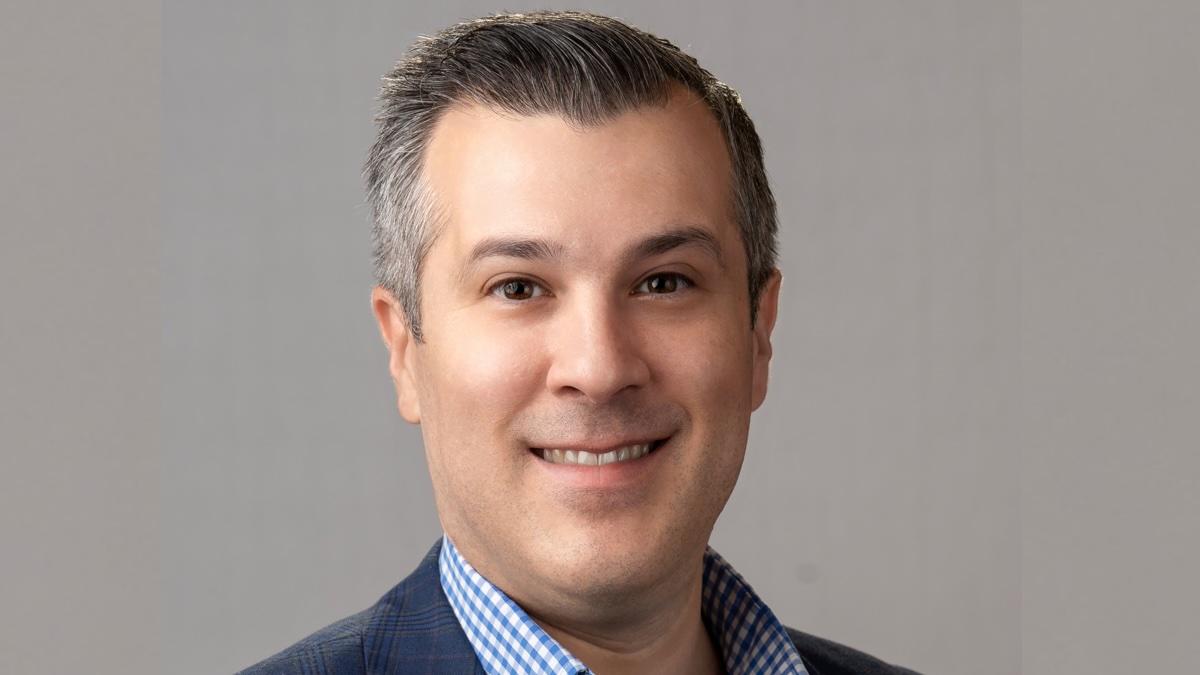Just call it ‘good marketing’: Dan Gandor on why omnichannel matters

Dan Gandor has spent his whole career pioneering digital techniques for pharma marketing and creating centres of excellence at pharma companies like Takeda and AbbVie. Last month, he joined pharmaphorum's parent company and pharma marketing agency EVERSANA as EVP and Head of Omnichannel and Digital Transformation. I caught up with Dan to find out why he made the leap from pharma to agency, why omnichannel marketing still matters, how he’s thinking about AI, and more.
Tell me a little bit about your story. How did you get into this space, and what have you been doing at your previous two notable pharma gigs?
I've been in the pharma industry my entire career. I started in quality assurance and regulatory affairs. But I knew I was yearning to get closer to patients. For me, that was getting an MBA and going to business school. That got me into marketing. I fell in love with the practice of marketing and the idea of getting really close to customers, and, of course, in this industry, getting close to patients. I joined TAP, which was the joint venture between Takeda and Abbott at the time, on the Prevacid marketing team, and really cut my teeth there and on multiple brand teams. I went from brand team to leading patient strategies, consumer strategies, HCP, and professional strategies.
This was at the time when internet marketing was becoming a thing, and I was always known as the digital guy or the internet marketing guy, which was great because I've always been a techie. I've always been involved in just tinkering and building websites and things of that sort. It was a great space to do digital marketing in its infancy. But I was constantly reinventing the same wheels when I went from brand A to brand B to brand C, so at Takeda I made the case to create a centre of digital marketing, to really make sure that we weren't reinventing the wheel or reinventing the wheel poorly when it came to the next brand launching as Takeda's portfolio grew.
That's when I realised the power of centres of excellence and centre teams to be able to not just impact one brand at a time, but really all brands and the entire portfolio. We also expanded the remit from just CRM and relationship marketing to all things digital. Any platform, any technology that was used by multiple brands was managed by the centre that I helped to create.
After Takeda, I led AbbVie's Center of Excellence for Digital and Omnichannel Marketing within the oncology space. It's been a fun journey for me.
When I had the opportunity to talk with EVERSANA, and now not just do this for one large company or one portfolio at a time, but do this for the entire industry, that was really exciting and enticing for me. We've got all the spokes on the wheel to able to run and execute many of these channels. We can practice what we preach. We can help companies build it. We can help companies in-house it. We could do it for them. I just love the flexibility and agility and speed that a company like EVERSANA afforded to me.
A few years ago, everyone was talking about omnichannel. Now I'm starting to go to events and hear people say, “Omnichannel is passé. We're over it. It's not working the way we thought it was going to work.” Where do you fall in those conversations? Are you still bullish on omnichannel and why is it still important and meaningful?
First off, I think omnichannel marketing is not different than good marketing. To that point, actually, I would love it if five years from now, we don't talk about omnichannel marketing as something special or distinct. I prefer that we just say, “This is how marketing gets done.”
As the name implies, omnichannel means all. We need to be thinking about the experience of our customers, be it patients, prescribers, consumers, whatever, across any and all channels that we engage with them. I came from very advanced digital marketing companies, but many of them thought of omnichannel as emails and the digital tactics instead of the sales force and what we do in person and congresses and conventions. I would say, again, omnichannel means everything. First off, I would say omnichannel is considering, strategising all channels: personal, non-personal, digital, analogue, online, offline.
For me, I visualise it as a hub and a spoke. You've got the customer at the centre, you've got the different channels, different spokes. But each spoke is a two-way arrow. It's all about how you capture more data, more insights, and understand your customers better through every engagement that you have with those customers. That's what the inbound arrows imply. Conversely, we need to be using that data to customise, humanise, personalise the experience for that person in that channel at that time. Your experience in Netflix or Amazon is very different than mine because of our different demographics, our different history, our different transactions, and the different channels where we engage with Amazon or Netflix. That's what we as consumers, as humans, have come to expect.
Then finally, we've got to think about the experience of our customers across the channels. Because look, no one customer is going to engage with every channel and every tactic that a brand may put out there. But if they only engage with the brand one or two times throughout maybe a year or two, how do you make those two interactions feel like five?
That’s how I think about omnichannel marketing as a bigger, broader, more sophisticated thing.
I’m a musician. I love music metaphors. I think symphonies play better when they're in tune and they're conducted by a conductor, making sure everybody's at the right tempo and playing with the right tonality and balancing across everybody. That's how marketing needs to engage with customers. I love the fact that we call our operating system for omnichannel marketing Orchestrate, because I think it's very apropos, but it really is all about creating that harmony, that symphony of sound for our customers.
Whatever that’s called, I'm bullish on it. That's my very long-winded way to say I'm still very bullish on the concept of omnichannel marketing.
You've gone through that whole answer without talking about AI. Do you see AI as just additive to this vision of omnichannel that you just articulated, or is it a new direction?
I see AI as an accelerant. It's fuel on the fire. It makes everything go faster, be smarter, be quicker, give more options. Certainly, there are the generative AI use cases around creative. As we talk about personalised marketing, well, you're going to need to have different versions of stuff, one for you, one for me, one for someone else. Obviously, AI is going to help make the operations of creating personalised iterative content at scale more feasible. If you had to create each version bespoke by hand, that's time and energy and cost. I think AI is an accelerant to that.
I think AI is a huge accelerant when it comes to analysing data and targets and figuring out who is that customer at the centre of my hub-and-spoke omnichannel model and how best to do we engage with them, finding what are the right channels at the right time based on data triggers. That's absolutely integral to every part of what I talked about, whether it's understanding your customer better, creating the pieces and the assets that are leveraged, tying the journey together.
Because when you have a million customers operating in this ecosystem with all the different channels firing off and them engaging at different times, it has to be managed. I think AI can do that at scale.
What are some of the headwinds that pharma marketing is facing right now?
I think there's certainly the headwind of compressing budgets. I felt that in every client I was at. But to me, that's just an opportunity to be smarter with your marketing or make your marketing work harder. Again, that's where I think omnichannel has a role. It's maybe not a headwind, it's a tailwind.
I'm not going to say AI is a headwind, but the idea of AI being the end-all be-all solution in and of itself, I think, can be a headwind. I think the right way to think about it is more fundamental. How do I bake AI into everything that I'm doing instead of a single use case or a single widget that is, quote-unquote, AI? But if companies are thinking about just, Where do I put AI? Where do I do an AI thing? I think that's a headwind because then it misses the bigger picture. They're looking at trees instead of the forest.
I also know consolidation is a big one. A lot of brands and pharma companies are in-housing and not wanting to work with external agencies many times. That, again, can be a headwind. But I also know pharma companies can't do it all themselves. There's a benefit to having an agency model where we are working across so many different clients and seeing so much more broadly than an internal centre of excellence ever could. Believe me, I tried to make sure the centres of excellence that I ran were as broad and in taking as much information and as open as possible, but we had limitations. I think that's a headwind, too. But again, an opportunity for companies like us to make sure that our values recognise that we can bring that expertise, we can help folks see around corners, and we can bring solutions to them that might be harder to pilot themselves.
I think that's another big headwind in these bigger companies, you just have so many silos and so much bureaucracy and processes. It's hard to be in a very dynamic world driven by AI, driven by data, driven by omnichannel. I think we've got the ability to navigate those waters and help companies figure out the right bets to play, and because we're seeing it across so many more places and times.
Pharma marketing can get a bad rap among patients sometimes. There's a perception that it's all about the money, that you're trying to get people to take drugs they don't need. How do you incorporate the patient perspective and make sure that you're doing your work in a way that is patient friendly and patient-centric?
I’ve certainly been in the holiday conversations where that might come up, talking about pharma marketing, generally. But I know in my heart and from everything I've seen, every company I've worked for, EVERSANA included, really puts the patient's best interests at heart. We want to make sure that patients are aware and informed of what's out there so that they can make the best decision for themselves with their health care professional. I've never worked for a company that's simply trying to push their medicine just because.
Obviously, we're for-profit businesses, so we are trying to balance that. But I sleep well at night knowing that every time I've done marketing or reached customers, it's ultimately to make them more informed and, again, ask the right questions and have the right conversations, instead of just “take our medicine forever just because it's shiny and it's great”. Of course, the great news, and this is where my regulatory affairs and quality assurance roots come through, is that everything we say, every “i” dotted and crossed “t” has to be blessed by medical, regulatory, and legal. That's what guarantees that everything we're doing, especially here in the US, is compliant across the world, frankly.
You asked about headwinds and made me realise, of course, the dynamics in politics. We're hearing lots of changes at the FDA. We're hearing potential changes related to even DTC pharma marketing, generally. We'll see. But again, the only constant in life is change. I think That's just what continues to make pharma marketing fun.
There's a tension with transformation where you're trying to stay ahead of the competition, but you also want to transform the whole industry, which presumably means you want the competition to follow suit. How do you think about that?
I want them to follow suit. I want us to be the leaders and have everyone else realise, wow, this works, and this works better, and it's faster, and it's more efficient and everything else that I know it can be. I hope our clients who work with us are the leaders because of us working with them. I hope we're a leading agency because of that. But frankly, I do want to be public about it. I want people to know that this is how good marketing should be. I fully expect other agencies to follow suit. I expect other pharma companies to follow suit. I guess if I have my way when I retire in whatever 10, 15 years, I hope that's the transformation that I helped catalyse here and everywhere I've been.












